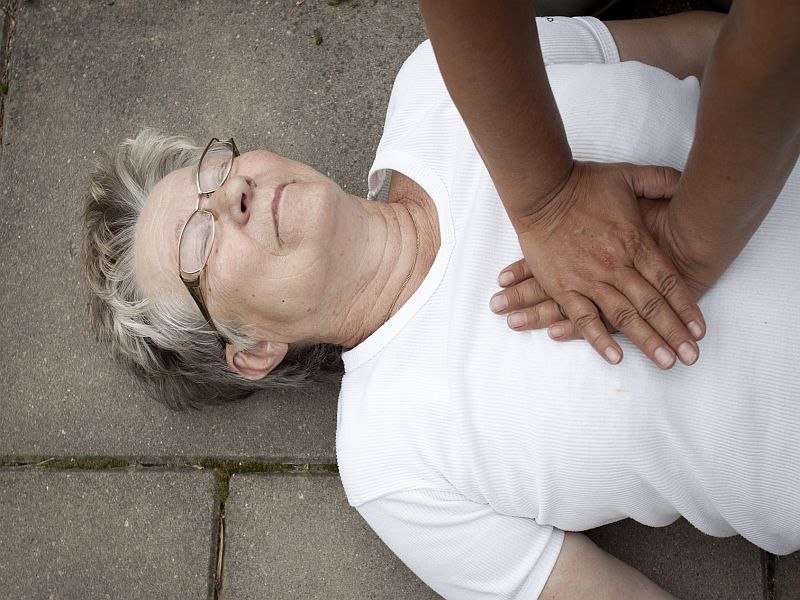Kneeling posture impacts chest compressions' effectiveness

(HealthDay)—During cardiopulmonary resuscitation (CPR) performed by males, self-adjusted and nearest kneeling postures are more effective for chest compression, with lower perceived exertion, according to a study published online Oct. 5 in the Journal of Clinical Nursing.
S.H. Ho, from The Hong Kong Polytechnic University and Daniel H.K. Chow, Ph.D., from The Education University of Hong Kong, applied a self-controlled repeated-measures design to examine the impact of kneeling posture on chest compression during CPR in males. The authors recruited 18 participants with a qualified first-aid certificate. Each participant performed three sessions of CPR on a mannequin using one of three kneeling postures (farthest, self-adjusted, and nearest) in each. Each session comprised five CPR cycles (30 strokes of chest compression within 18 seconds) in each kneeling posture and lasted two minutes.
The researchers found that the efficacy of chest compression was significantly better in the self-adjusted and nearest kneeling postures than in the farthest posture. Similar effect was seen for the self-adjusted and nearest postures, while because of the lower rate of perceived exertion, most participants preferred self-adjusted kneeling posture.
"The use of the self-adjusted and nearest kneeling postures during CPR in males resulted in more effective chest compression with lower perceived exertion," the authors write. "Both these positions can be objectively recommended to enhance the efficiency of chest compression and thereby increase the cardiac arrest survival rate."
More information:
Abstract
Full Text (subscription or payment may be required)
Copyright © 2017 HealthDay. All rights reserved.


















